Lions and Wales legend JPR Williams remembered as a ‘revolutionary’ rugby player, family man and doctor at his funeral service… with Welsh greats among hundreds of people at Llandaff Cathedral
On SatOn this day Wales celebrated its patron saint David, the country said goodbye to one of its true rugby greats and Llandaff Cathedral sang a song in tribute to JPR Williams.
The timing couldn’t have been more appropriate. Williams, who sadly passed away in January aged 74, could not have been prouder to be Welsh. His funeral took place on St David’s Day and the day before what would have been the legendary former full-back’s 75th birthday.
Williams will always be remembered for his extraordinary rugby achievements. But as he attended his funeral service at an iconic Cardiff location on Friday, he was reminded that he was much more than just a sportsman. Williams was also a doctor, a loving husband and father, and a talented singer.
The man who played for Bridgend, London Welsh, Wales, the British & Irish Lions and the Barbarians always loved music.
An audio clip of him singing as a young boy was played at his funeral service.
Former Wales and British and Irish Lions full-back JPR Williams died in January aged 74
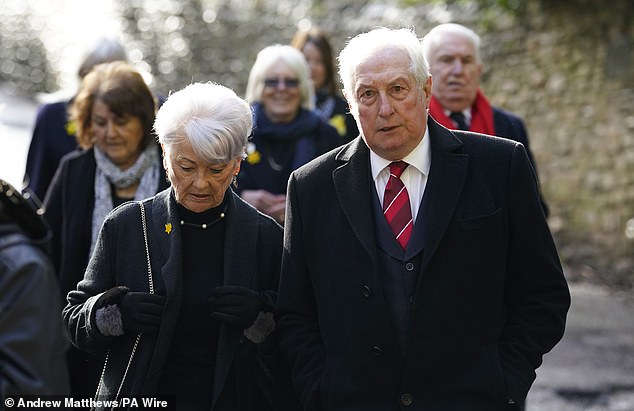
Sir Gareth Edwards was among the Welsh rugby greats to pay tribute to Williams on St David’s Day
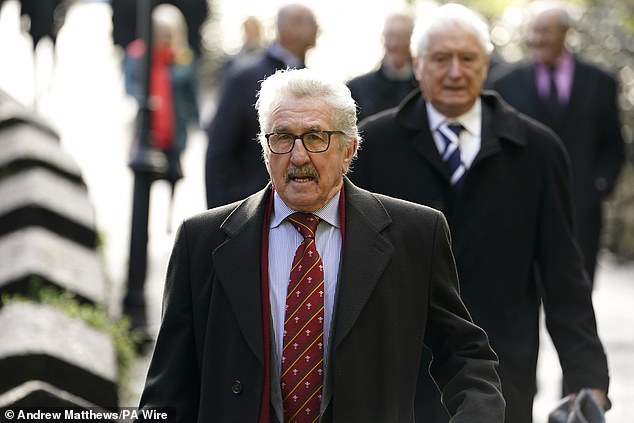
Wales legend Gerald Davies joined the Williams family to celebrate his extraordinary life
In later life, Williams changed from boy soprano to mature baritone and sang regularly with the Bridgend Tabernacl Choir, which performed at Llandaff Cathedral for his final farewell.
This reporter has fond memories of arriving at a friends wedding in Cowbridge in the Vale of Glamorgan, where he saw a choir already in action in the church.
One face looked very familiar to me.
There was Williams, leading from the front with his voice, just as he had done on the rugby field.
It seemed fitting then that his funeral service included five separate hymns and ended with a rendition of Hen Wlad Fy Nhadau – the national anthem of Wales.
The great Sir Gareth Edwards paid tribute to his good friend and former teammate Williams.
“I spent a lot of my career on the field at JPR,” said former scrum-half Edwards.
‘He was a great innovator. He changed the fullback position virtually overnight.
“He carried the ball back like a guided missile and had so many ways to beat a defender’s challenge.”
Unlike today’s players who have only known rugby as a professional career, Williams lived in a different era.
He played sports as an amateur and his life looked very different as a result.
John Taylor, another of Williams’ former playing colleagues and best man at his wedding to wife Priscilla, said: ‘On the field he was a revolutionary.
“JPR tore up the rule book from the beginning. No one created the extra man better than he did. He was without a doubt the most competitive man I have ever met. He looked invincible on the field and that was pretty much true.”
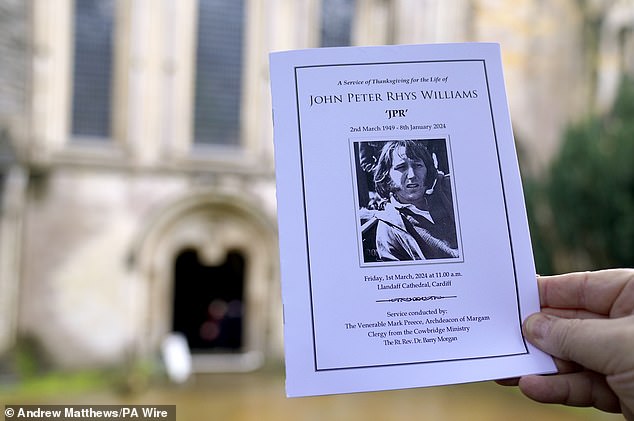
Former teammates, family and friends gathered at Llandaff Cathedral in Cardiff on Friday
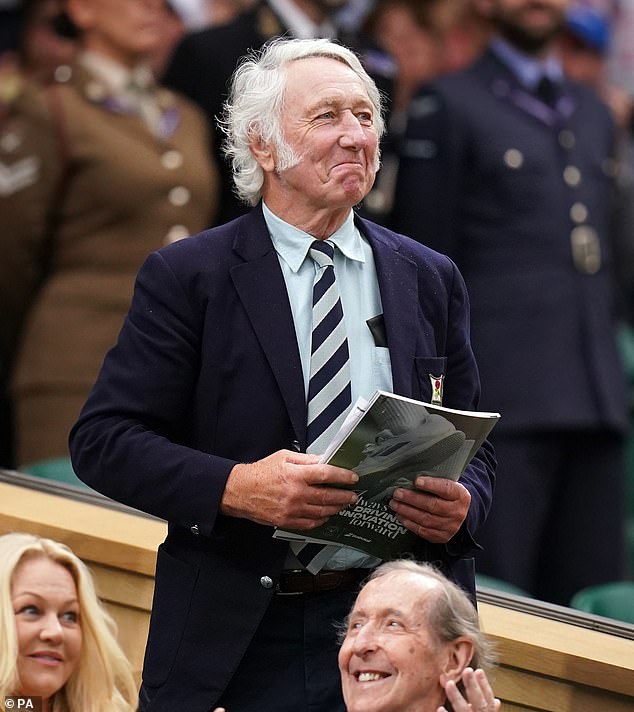
Williams was revered among other Welsh greats such as Sir Gareth Edwards and Phil Bennett
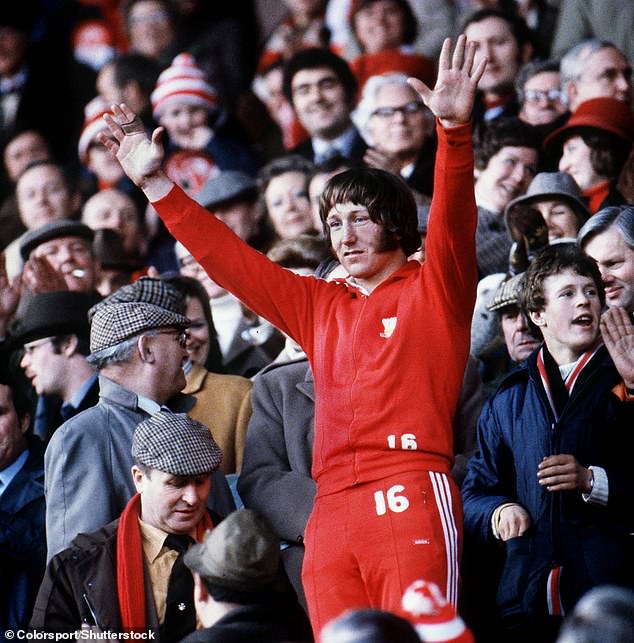
The former full-back was synonymous with Wales and Lions glory in the 1970s
Williams’ rugby achievements will never be forgotten. He won three Grand Slams in the then Five Nations, seven championship titles, and was a key figure during the successful and historic Lions tours of New Zealand and South Africa of 1971 and 1974, winning all eleven matches against England.
“He really was the scourge of the men in white,” Taylor said.
Williams was remembered as ‘one of the legends of Welsh rugby.’ Greats from the country’s national sport, including Delme Thomas, Clive Griffiths, Gerald Davies, Terry Cobner and Ieuan Evans, joined Edwards, Taylor and the Williams family in celebrating his extraordinary life.
Former MailSport rugby correspondent Peter Jackson paid his respects and said: “JPR – the three most famous initials in the history of the sport. Initials that will forever bring back memories of glory days. He was the rock on which Wales’ monumental success in the 1970s was founded. His kind will never be seen again. But the unforgettable should never be forgotten.
‘He praised it over Twickenham as if he owned the property.’
The sound of choirs and flashes of yellow filled Llandaff Cathedral, with many in attendance wearing a daffodil to celebrate St David’s Day.
The room was packed in memory of Williams – known as ‘Japes’ by his former team-mates – and whose full name was John Peter Rhys.
Williams’ stories will live on into the future. His iconic sideburns, fearless playing style and on-field achievements have long since rightly earned their place in history.
But Williams was remembered not just as a player, but as a person.
It was pointed out how he followed his family history by working in medicine and was also a British national tennis champion at Wimbledon in 1966 as a junior.
Williams defeated David Lloyd – a future Great Britain Davis Cup captain – to win that title. He played rugby until he was 50, including at grassroots level.
Edwards recalled a memory from a tour to Japan, during which he and Williams played tennis against some competitive locals after looking for a place to get some extra fitness work done.
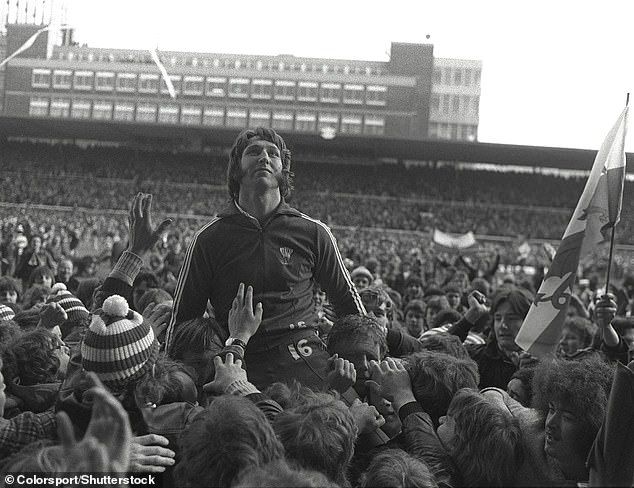
The iconic former rugby star captained Wales and Bridgend and won 55 caps for his country
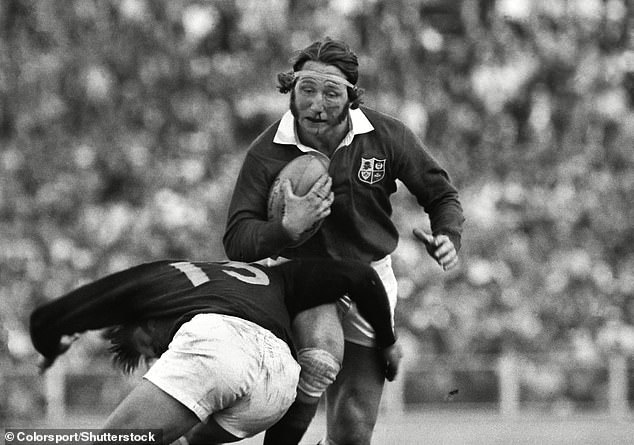
He started eight Tests during victorious Lions tours to New Zealand in 1971 and South Africa in 1974
“JPR told me, ‘Gar, just get the ball back and I’ll do the rest,’” Edwards said. “He was the ultimate warrior and competitor. He was fearless, resilient and competitive.
‘Every time there was a fight on the pitch he would come running from the full-back and say ‘wait for me’, while Phil Bennett and I were the other way around!’
Williams summarized the story down to the last detail.
It’s a huge shame that he, Bennett and Barry John – a trio of Welsh legends of the 1970s – have all passed away in the last two years.
